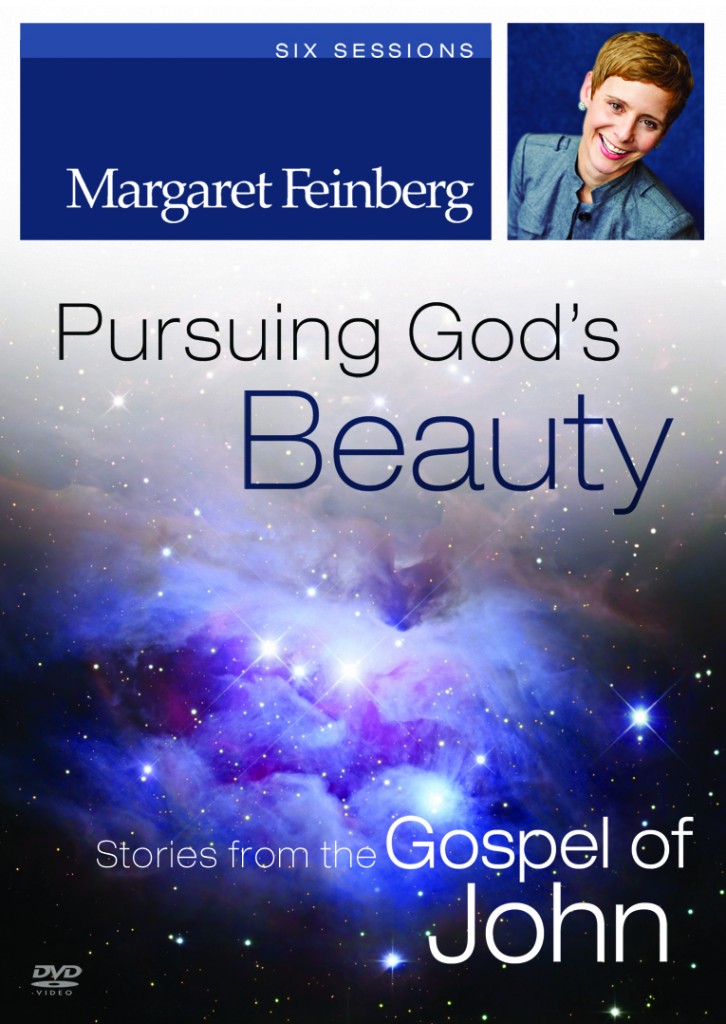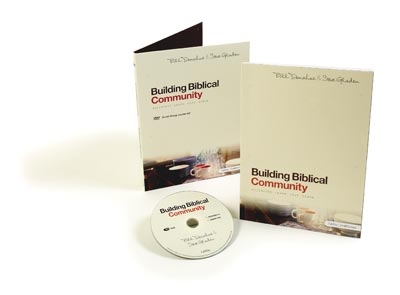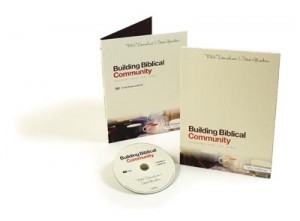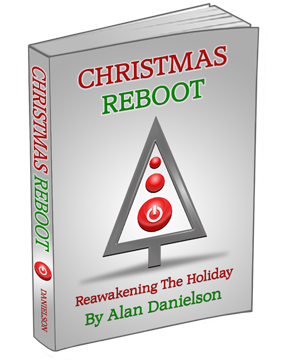My friend, Margaret Feinberg (on Twitter HERE or Facebook HERE), just launched a new 6-week DVD Bible study series called “Pursuing God” with Zondervan. The first two titles are Pursuing God’s Beauty: Stories from the Gospel of John and Pursuing God’s Love: Stories from the Book of Genesis. Instead of me giving my thoughts on the study, I thought you might like to hear directly from Margaret.
Ben: Where did you come up with the idea for this series?
Margaret: I reached a place in my own spiritual life where I felt disconnected from God. I decided to return to the foundations of my faith by reading through the Book of Genesis. Something sparked as I studied, and so I continued reading and rereading for more than 18 months.
During that time, I kept hearing a reverberation in conversations with people around the country who were looking for a Bible study that wasn’t topical but rather based on a book of the Bible—allowing them to really dive deeper into the Scripture. But they admitted that either they or some of the members of their small groups don’t have time to tackle an hour of homework a night. So I began to develop a study that created an equal playing field for the veteran believer who had time to do 30-minutes of homework a night and the young mom who barely has time to take shower. Both can engage in this study—whether or not they’ve done the homework that week—and explore the Scripture together. The study encourages participants to not only grow deeper in relationship with God but with each other as they discuss and share life together.
Ben: What are some of the unique features that make these resources different from every other resource available for small groups?
Margaret: Pursuing God’s Beauty: Stories from the Gospel of John and Pursuing God’s Love: Stories from the Book of Genesis are six-session DVD Bible studies with each session averaging 18 minutes in length—leaving plenty of time for discussion and digging deeper into the Scripture and topics covered. Pursuing God’s Beauty is filmed in an artist’s loft with an artist painting in the background—the picture complete with the final session. Pursuing God’s Beauty is filmed outdoors in Colorado with rock climbers in the background. Each lesson features icebreaker questions as well as experiential activities, and five after-hours studies each week are provided in the participant’s guide for those who want to dive deeper into the Scripture at home.
Ben: What is it that you hope people would get out of these studies?
Margaret: Studying the Bible is more than something for ‘religious’ people and is more than something done in isolation. Through these studies, we’re reminded the Bible was meant to be discussed in community, and its stories are powerful enough to speak to each one of us—wherever we are and whatever our circumstances might be.
Ben: Why did you select Genesis as one of the book of the Bible to dive into?
Margaret: It’s amazing to think that everything we see and encounter in our world today—whether in a place like this with breathtaking views or in a more urban context all began in Genesis.
I love this book of the Bible, because Genesis is the story of our beginnings. In fact, the first word of the Bible in Hebrew is beresheet meaning “in the beginning”. This is the story of our origins, where we began, the formation of our cosmos and humanity. It is also the story of alienation from God, from each other, and from the creation. It’s is also the story of his loving initiative to redeem the world back to himself.
The Genesis story matters because in order to understand where we are today, we must go back to the beginning. The past helps us understand our present and illuminates our future.
Ben: In studying the Gospel of John, you invite readers to explore the beauty of God. Unpack that a little for us.
Margaret: Ultimately, you and I were designed to be captivated by God’s beauty. And when we pursue His beauty—we can’t help but find ourselves on a journey… to know more about God, His character, attributes, ways and work, in our world. And the miracle of this journey is that along the way we find breathtaking portraits of salvation, redemption, and restoration.
Perhaps no book of the Bible paints a clearer picture of this then the Gospel of John. Throughout the Gospel of John, the beauty of God radiates in the person of Jesus Christ—the one in whom God displayed his whole heart for the world to see. It’s within the person of Jesus that we find the invisible attributes of God being made visible, on display like the fine pieces of artwork in this gallery—to be enjoyed, celebrated, and reflected upon.
For more info, check out PursuingGodBibleStudy.com.
I’ll be giving away one copy of each of these studies. To be eligible to win, leave a comment, ReTweet, or share on Facebook. Make sure you tag me so I can add you to the drawing! Drawing will be held on Friday, September 23rd, at 9:00 pm.









